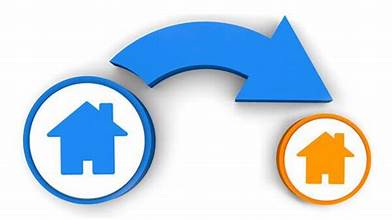Preparing Your Home For Sale

1. Declutter and Downsize: Start by decluttering your home. Remove items that you no longer need, and consider downsizing to make your move more manageable. Pack away family photos and personal items to depersonalize the space.
2. Safety First: Ensure that your home is safe for potential buyers. Fix any tripping hazards, loose handrails, or broken steps. Make sure smoke detectors and carbon monoxide detectors are in good working condition.
3. Deep Cleaning: Give your home a thorough cleaning. If mobility is an issue, consider hiring a professional cleaning service. Pay special attention to kitchens and bathrooms, which can significantly impact a buyer's perception of your home.
4. Repairs and Maintenance: Address any necessary repairs, such as leaky faucets, damaged flooring, or chipped paint. Consider investing in minor updates, like a fresh coat of neutral paint and updated fixtures.
5. Curb Appeal: First impressions matter. Spruce up your home's exterior by maintaining the yard, trimming shrubs, and adding colorful potted plants. Repair any obvious exterior issues, such as damaged siding or a leaky roof.
6. Staging: Consider professional home staging to make your home look its best. Staging can help potential buyers visualize themselves living in the space.
7. Lighting: Ensure that your home is well-lit. Replace burnt-out bulbs and consider using higher wattage bulbs to make your space feel more inviting.
8. Storage: Create the illusion of ample storage space by organizing closets and storage areas. Buyers often consider storage space a priority.
9. Accessibility: If you have mobility challenges, consider making your home more accessible by adding handrails, ramps, or other modifications. Ensure that walkways and doorways are wide enough to accommodate wheelchairs and walkers.
10. Documents and Paperwork: Gather important documents, such as property deeds, inspection reports, and any warranties for appliances, to provide to potential buyers.
11. Get a Pre-sale Home Inspection: A pre-sale inspection can help identify any hidden issues and give you an opportunity to address them before listing your home.
12. Real Estate Agent: Consult with a real estate agent who specializes in senior home sales. They can guide you through the process, recommend trusted contractors, and help set a competitive selling price.
13. Marketing: Work with your real estate agent to create a marketing plan that includes professional photography, online listings, and traditional marketing methods.
14. Timing: Discuss the best time to list your home with your real estate agent. Timing can significantly impact the sale.
15. Emotional Support: Selling a home can be an emotional experience. Lean on friends and family for support, and consider speaking with a counselor or therapist if needed.
16. Plan for Your Next Home: Consider where you'll live after the sale and make plans for your next home. This might include looking for a new residence or organizing a move to a senior living community.
Remember that selling a home can be a time-consuming process, and it's essential to be patient and flexible. Your real estate agent can provide valuable guidance throughout the entire process and help ensure that you get the best possible outcome when selling your home.


